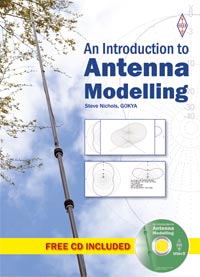 As far as the history books and the general public are concerned, Marconi is the father of radio.But Marconi’s main claim to fame all rests on a simple premise — did he actually receive signals from Poldhu, Cornwall, UK at Signal Hill, Newfoundland on December 12, 1901?
Unfortunately, some say the evidence is stacked against him and people have argued about the success or otherwise of his achievement for years.
Read Steve's feature from the December 2007 issue of QST on the work of the GB3SSS experiment (3Mb PDF).
As far as the history books and the general public are concerned, Marconi is the father of radio.But Marconi’s main claim to fame all rests on a simple premise — did he actually receive signals from Poldhu, Cornwall, UK at Signal Hill, Newfoundland on December 12, 1901?
Unfortunately, some say the evidence is stacked against him and people have argued about the success or otherwise of his achievement for years.
Read Steve's feature from the December 2007 issue of QST on the work of the GB3SSS experiment (3Mb PDF).
Thursday, 29 January 2009
Did Marconi really hear signals across the Atlantic in 1901?
 As far as the history books and the general public are concerned, Marconi is the father of radio.But Marconi’s main claim to fame all rests on a simple premise — did he actually receive signals from Poldhu, Cornwall, UK at Signal Hill, Newfoundland on December 12, 1901?
Unfortunately, some say the evidence is stacked against him and people have argued about the success or otherwise of his achievement for years.
Read Steve's feature from the December 2007 issue of QST on the work of the GB3SSS experiment (3Mb PDF).
As far as the history books and the general public are concerned, Marconi is the father of radio.But Marconi’s main claim to fame all rests on a simple premise — did he actually receive signals from Poldhu, Cornwall, UK at Signal Hill, Newfoundland on December 12, 1901?
Unfortunately, some say the evidence is stacked against him and people have argued about the success or otherwise of his achievement for years.
Read Steve's feature from the December 2007 issue of QST on the work of the GB3SSS experiment (3Mb PDF).
Labels:
Marconi
Subscribe to:
Post Comments (Atom)










If he didn't receive sigs. it's a damned good job he lied about it or experimentation wouldn't have been pursued in the way it subsequently was!
ReplyDeleteGood onya Luigi..
Hi, Just to correct you and many people who believe Marconi to be the father of Radio. In Fact Nickola Tesla Was credited to be the father of radio in 1943 after it was recouldnise that Marconi had used 17 of Tesla's patents to make his Trans Atlantic Transmission. If you look into Tesla's work he dicovered most of the radio spectrum we know and use today including X rays.
ReplyDeleteNote I said "as far as the history books and public are concerned". Nikola Tesla is an important figure in the history of radio, just as Braun, Popov, Lodge, Hertz, Fessenden, Branly, Bose and others are. I have a number of books about his work and it is fascinating.
ReplyDeleteTesla was a brilliant scientist, but did not have the commercial acumen that Marconi had. It would have been interesting to have seen how far he would have got with Wardenclyffe if JP Morgan had not pulled his funding.
At least Tesla had an SI unit named after him - Marconi didn't. Although Marconi received a Nobel prize and Tesla didn't. But was he ever nominated? - see the Wikipedia entry at: http://en.wikipedia.org/wiki/Nikola_Tesla#Nobel_prize_and_Tesla